Snow peas are popular plant to grow at home in your own garden because they produce prolific amounts of pods that are fresh, crunchy, and fantastic for using as snacks in lunch boxes. However, if you have a gut of the plants you may be wondering if you can feed the excess to your chickens. Is it safe? And we they actually eat them?
Snow peas are plants that you can safely feed to chickens and they will eat them readily as part of a balanced diet. However, they can sometimes find the outer pods of the peas of a bit difficult to eat, so you can quickly run them through a food processor to chop them up and then give them to the chickens.
When providing snow peas to the chickens it is best to ensure that the snow peas are relatively fresh as the chickens will generally find snow peas that are a little bit older somewhat less appetizing just like we would.
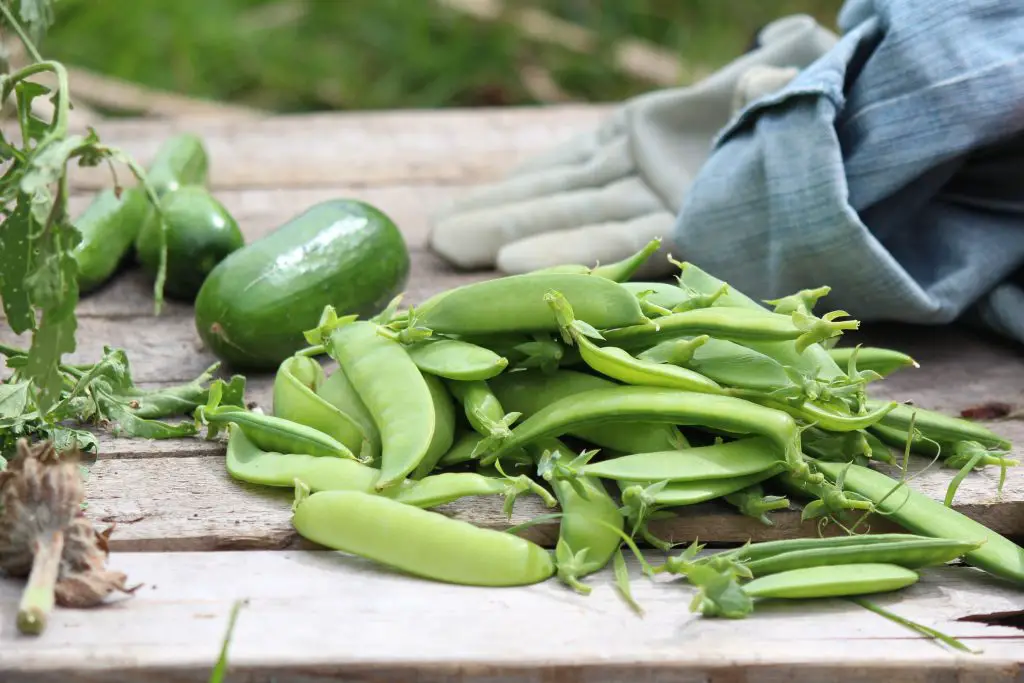
Will Chickens Eat Other Types Of Peas?
Chickens will readily eat a range of different types including snow peas, sugar snap peas, and shelling peas.However, they generally find the pods of the shelling peas to be a little bit tougher and therefore are a little less keen on those particular types of peas.
So if you are feeding them shelling peas it is best to mix them in with a range other scrap vegetables and avoid putting too many peas in at any one time. This will ensure that the chickens do not leave them on the ground.
Can You Feed Chickens The Foliage Of Snow Peas Plants?
The foliage of the snow pea plants can also be given to the chickens to eat, however, the chickens do prefer to have fresher leaves. It is a tendency of many gardeners to give the plants to the chickens at the end of the season when the foliage is half dried up and beginning to dieback.
Generally, this is the point at which the chickens will nibble on the best of the leaves on the foliage but they generally will leave the dried up stringy stems in the coop untouched. So if you’re going to use snow pea leaves they really should be flesh.
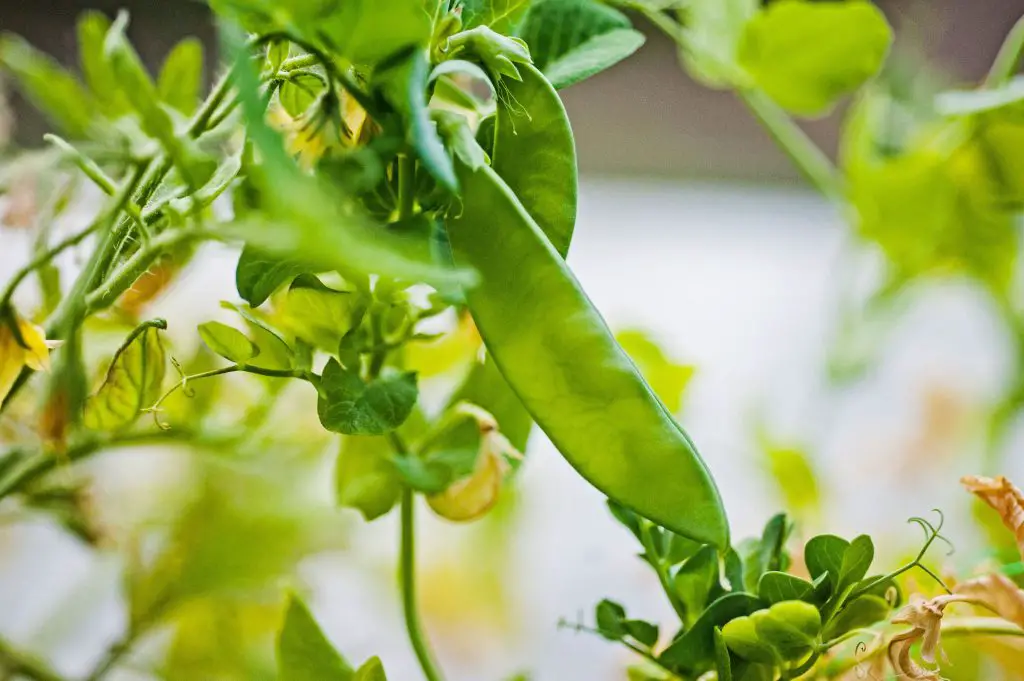
Can You Feed Chickens Too Many Snow Peas?
It is possible to feed chickens too many snow peas which can be problematic because the chickens can get diarrhoea and become a little bit sick.So ideally snow peas should be fed to the chickens with a mixture of other vegetables that contain a range of nutrients that will suit the chickens requirements.
It is also advisable to use these snow peas and other vegetables to supplement the chickens diet which should ideally be based on commercial chicken feeds which do have everything that the chickens may need.
If your chickens are eating too many snow pea pods, they might stop laying eggs and get sick or their feathers might start to look ragged as they are losing weight. If this happens, it’s best to reduce the amount of snow peas your chickens are being fed until they feel better again.
If you are already feeding your chickens some snow peas, you might be able to get away with feeding them more. The important thing to remember is that not all peas are created equal and some varieties of snow peas will have a sweet flavor and others will taste like chicken.So it’s best if you try a few different types and see which ones the chickens seem to enjoy the most.
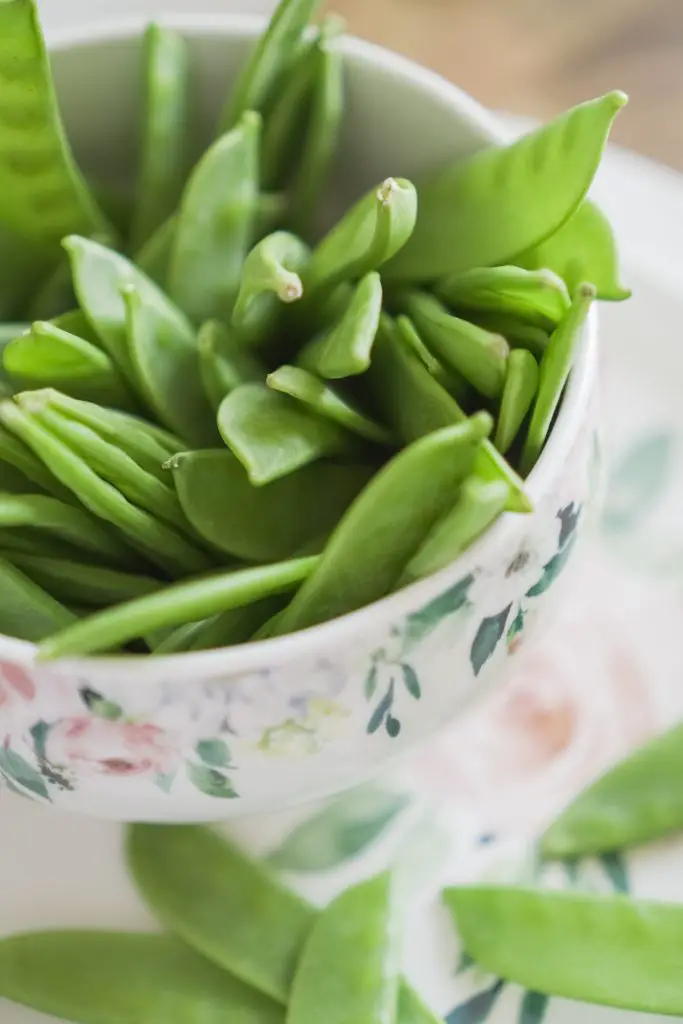
What Types Of Plants Should Chickens Be Eating?
Chickens are omnivores that eat a wide variety of different plants.This can be a source of confusion for many people, as some people say chickens should only eat vegetables and grains, while others say they can eat any type of plant.
However, chickens should definitely have access to green plants in their diet as well as some (but not too much) calcium from insects or bones. It is important to not feed your chickens the same food all the time so they will not become bored with what you are feeding them and stop eating it.
Also, keep in mind that your chickens need a varied diet so they will have more energy and less chance of disease, which will also help them stay healthy. It is also important to ensure that all the food that you give the chickens are safe. As a general rule, it is safest to only feed them foods that you would eat yourself.
It is also advisable to avoid ornamental plants as many of the common plants we grow in our cottage gardens can be toxic to both ourselves and chickens. So if you are not 100% sure that they are safe to eat do not feed them to the chickens.
Can You Feed Chickens Stale Or Mouldy Food?
Chickens won’t eat food that has gone bad. Moldy food will often have a musty aroma and cause the birds to be sick or die. In fact, feeding moldy food to chickens can cause your flock to become ill and may even kill them. Although it is rare, I know that some chickens will eat mouldy food if they are desperate enough.The problem with this is that these birds will likely stop eating anything else and only eat moldy food until they die in the process.
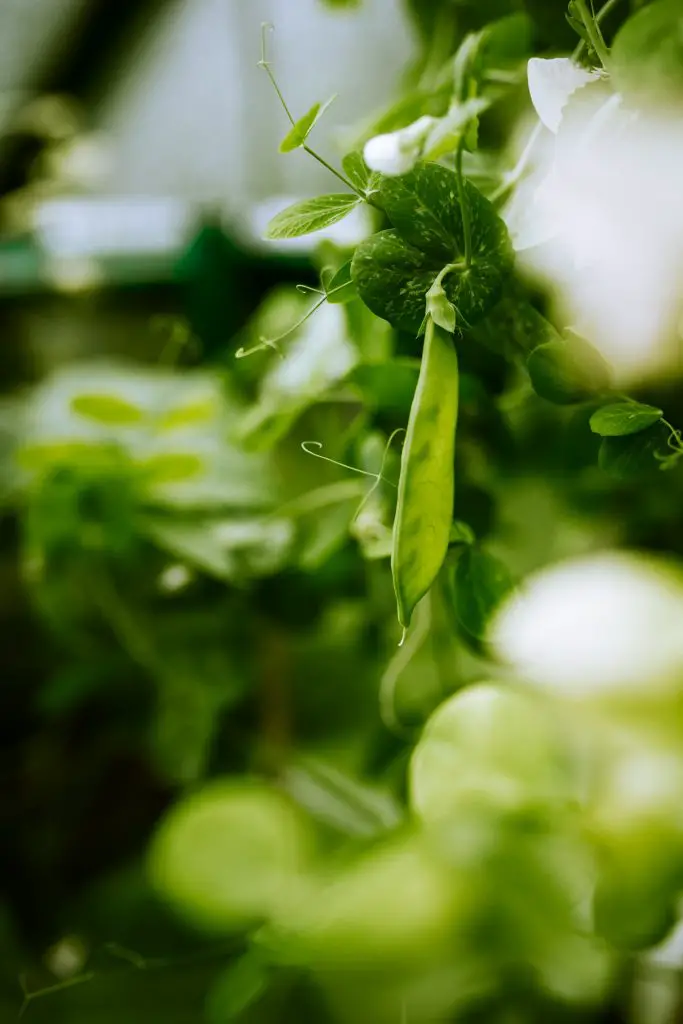
About Snow Peas
If you do want to supplement your chickens’ diet then snow peas are an easy plant to grow that will provide both pods and leaves for you and your chickens. So here is a little bit of information about growing snow peas.
The snow pea is a cool season plant with an relatively short growing season. As soon as spring arrives, the snow peas will start producing blossoms and then peas. However, as soon as the weather starts to warm up a little bit that will signal the end of the snow pea season. It is not until mid-summer that you can plant snow peas again which is the point at which the weather is starting to cool and conditions are suitable for snow peas again.
Snow peas will continue to crop throughout the Autumn until the weather gets too cold in winter, however, if you have a relatively mild winter they can continue to grow throughout the season.
The ideal growing conditions for the snow pea are a temperate climate with at least 300 frost-free days per year, natural shade from other plants, and well-drained soil. They like sunshine and will grow in full sunlight or partial shade.
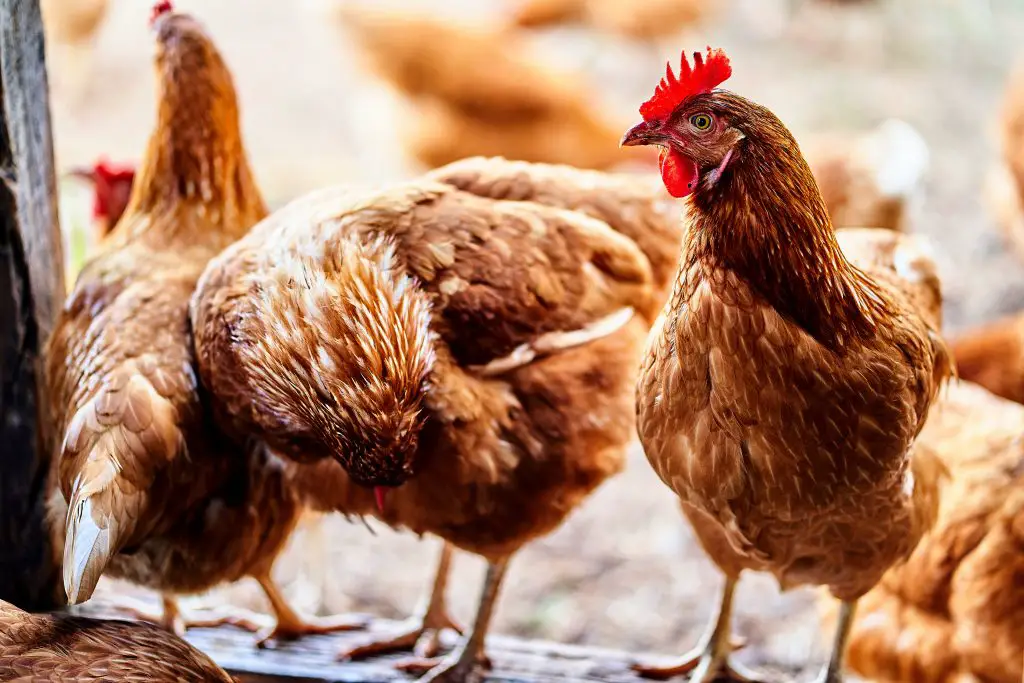
If the conditions are right for them, snow peas produce huge quantities of succulent pods that can remain on the plant for weeks after harvest. Snow peas also do better in cooler weather than warmer summers, but they’ll still grow if you have a mild climate.
When sowing snow peas the easiest way to do it is to create a long furrow that is approximately 1 to 2 inches deep and sprinkle the snow peas liberally into the farrow and then cover the seeds over with soil. The seeds will take 7 to 10 days to come up and will need a support structure like a trellis to keep them upright. This is not absolutely essential if you are planning to give both the pods and the foliage to the chickens.
To keep the plants upright the easiest way is to tie string horizontally across several plants pushing them onto the support will be enough to keep them upright.Snow peas over a period of time will produce flowers followed by pods which can be picked once they get longer than around 4 inches or so.
Conclusion
Chickens will eat peas and snow peas, so you can feed your chickens snow peas. You can feed them too much if you have a large flock and can use the foliage from the plants as well. Keep in mind that chickens need a variety of different plants to eat, so if you only have one type of plant, you might need to supplement your flock’s diet.
Relevant Articles
Can Chickens Eat Capeweed? Is It Safe?
Can Chickens Eat Jerusalem Artichokes? Is It Safe?
How Many Snow Peas Does A Plant Produce?
Can You Eat Peas Raw Straight From The Plant? (That Includes Snow Peas)
